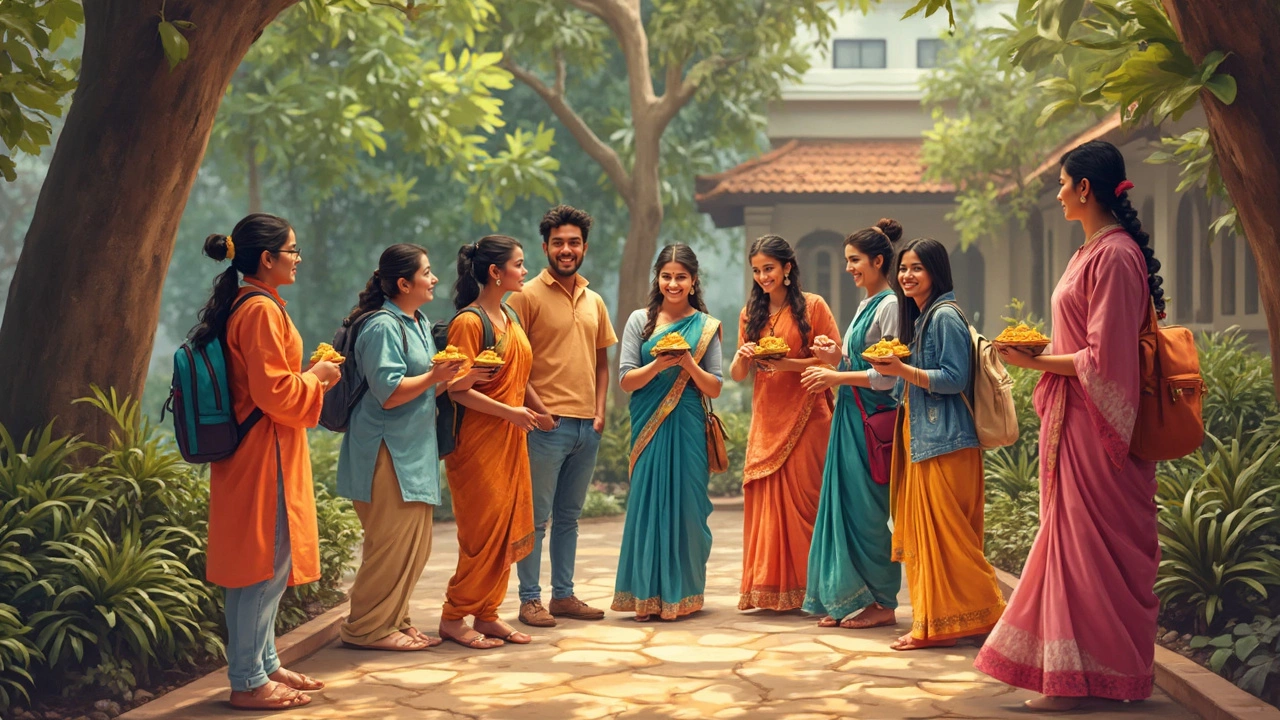Indian Values: The Heartbeat of Culture, Tradition, and Everyday Life
When you think about Indian values, the set of moral principles, traditions, and social habits that guide behavior across the subcontinent. Also known as Indian morals, they shape everything from family rituals to business etiquette, and they act as the glue that holds a diverse society together. Understanding these values helps you decode why a simple "Namaste" feels so powerful, why proverbs travel across generations, and why festivals light up every corner of the country.
One of the most visible expressions of Indian values is the way people greet each other. Indian greeting, the respectful gestures like Namaste, Namaskar, and regional equivalents such as Vanakkam embody humility, acknowledgement of the divine within each person, and a sense of equality. This greeting practice reflects the broader value of respect for others, a cornerstone of Indian social fabric. By using the right greeting in the right context, you’re not just saying hello—you’re honoring a cultural promise of mutual respect.
How Indian Sayings Capture Core Values
Another pillar that carries the weight of Indian values is the rich repository of proverbs and sayings. Great Indian sayings, short, memorable phrases that convey wisdom, moral lessons, and cultural norms act like cultural shortcuts. They teach patience, honesty, and community spirit in just a few words. When you hear “Jaisa Desh, Waisa Bhasha” (the language reflects the land) you’re reminded of the deep link between identity and environment—a value that fuels pride in regional diversity while reinforcing national unity.
These sayings don’t exist in a vacuum; they are intertwined with the broader Indian culture, the collective customs, arts, food, and social behaviors that define life in India. Culture provides the stage on which values play out, and values give culture its moral compass. For instance, the value of "Atithi Devo Bhava" (guest is god) shapes hospitality customs, influencing everything from home-cooked meals to hotel service standards. This semantic triple – Indian values influence Indian culture, which in turn reinforces Indian sayings – illustrates the loop that keeps traditions alive.
Beyond greetings and proverbs, Indian values also surface in everyday phrases and etiquette. Knowing a phrase like “Shukriya” (thank you) or using proper pronouns shows respect for linguistic diversity, reflecting the value of inclusivity. The post titled “What Is a Common Indian Phrase? 25 Everyday Phrases With Meanings, Pronunciation, and Etiquette” dives deep into this, showing how language acts as a vessel for values. When you speak the right phrase at the right moment, you’re doing more than communicating—you’re honoring centuries of cultural practice.
These values also have a modern economic dimension. Understanding how wealth is distributed in India, as explored in “Average Wealth of an Indian in 2025,” requires recognizing the value placed on family support, community sharing, and long‑term security. The value of "joint family" still influences savings habits, investment choices, and even the way people celebrate festivals. The interplay between traditional values and contemporary financial realities creates a unique social‑economic tapestry that is both resilient and adaptable.
All of this sets the stage for the collection of articles you’ll find below. Whether you’re curious about love’s scientific side, want to master regional greetings, or explore how Indian heritage fuels national pride, each piece reflects a different facet of Indian values in action. Dive in to see how these timeless principles shape modern life, guide personal relationships, and inspire creative expression across the subcontinent.
